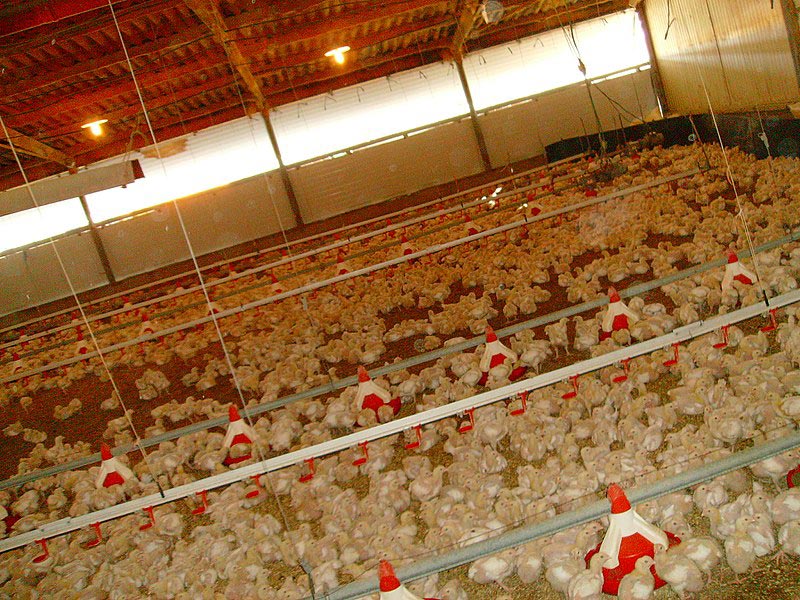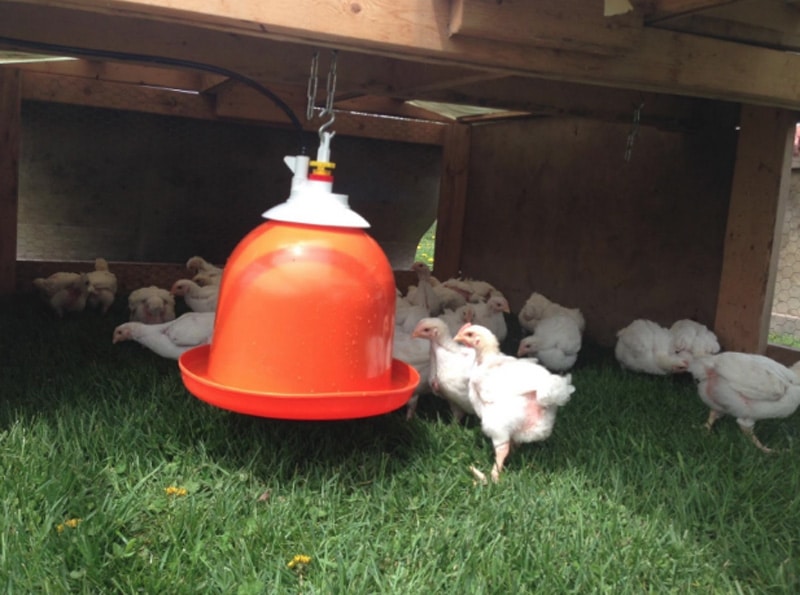

Picture if you will, you’re at the Farmers Market on Saturday morning, walking down the street looking at all the neatly stacked piles of produce and enjoying the smell of that fresh brewed cup of hot coffee in your hand. You start to feel a bit “peckish”(pun intended) from inhaling all the delicious smells wafting through the air. Your mind wanders to what you might want to make for dinner tonight as you pass yet another sign reading “Pastured poultry- $4 a pound”.
Does this scenario ring true to your Saturday mornings? I know it has at least once; with all the time we spend at the Farmers Market, we can see it happening even from a distance.
It can be hard choosing the food that is going to go on your family's table, especially when it comes to poultry! The media is full of horror stories about poultry operations, animals being abused and unethical living conditions, not to mention all the pharmaceuticals being used and GMO crops that are feeding these poor birds.
Is Your Poultry Pastured?
But here at the Farmer's Market you get to talk to farmer themselves and get a glimpse into the life of the poultry you are purchasing. Ask the farmer questions about how they are raised, like:
- Are these birds raised on pasture?
- Are they organic?
- Is their feed GMO free?
- How many times do they get moved per day?
- Where are they processed?
- What kind of birds are they?
Anybody selling chicken shouldn't have any problem answering these questions, quickly and precisely. As the customer it is your job to educate yourself on the answers to the questions you have. Let's go over these frequently asked questions and get an understanding of what you should be looking for as a customer.
If pasture raised birds are important to you then you should arm yourself with that question and a pre-determined acceptable answer. Chickens raised on pasture are going to have more chlorophyll in their fat from the green matter they are consuming; this chlorophyll gives their fat a deeper yellow color making it higher quality for stocks, frying and baking. A pastured bird is also going to have a better confirmation (body structure) than one raised in a confinement house; confirmation comes from their ability to exercise, adding muscle and fat at the same rate.
If a chicken is pastured it will need to be moved multiple times in its life if not every day. Depending on the manner in which the farm pastures their birds they may be moving their house twice a day or once a week. They can explain how and why they move them the way they do, but the biggest concern is that they do get new pasture and are not forced to stand in their own manure.
Finding an organically raised chicken isn't that hard if you do not require the USDA stamp of approval. Your farmer will be able to explain how they care for their birds and whether or not they're feeding an organic feed. It is important to know that chickens cannot get everything they need from a grass pasture; chickens require a great deal of protein and calcium to grow properly. The pasture can be great for protein if it is heavy with bugs and worms, but calcium is hard to find.
If you ask if the birds are organic you may or may not be disappointed with the answer. Most farms are, or are trying to feed their birds an organic feed but sometimes all they can get economically is a GMO free feed. This is where you, the customer, needs to have your pre-determined acceptable answer figured out before the transaction; is it imperative that the feed be Certified Organic? Or is GMO free an acceptable substitute.
Processing is the final step before the bird is offered to you at the market and some say it is the most important step in the whole process. Depending on where you live, birds can either be processed on farm by the farmer and staff, or they can be taken to a state licensed facility. Personally I prefer to have my birds processed in a licensed facility that I trust; I know they are being cared for and the final product is going to be clean, vacuum packed and ready to store for an extended time.
When it comes to breed or type of bird you want to purchase there are only a few options. While the points expressed in this article can be used to classify multiple types of poultry like turkeys, ducks and geese, we are specifically talking about chickens here. So you have heard me use the term broiler a couple times already and that means, large, tender meat chicken. In my opinion the broiler is your most versatile and widely available poultry breed on the market. That being said, there are a couple other options; a heritage breed chicken like a naked neck or a freedom [red] ranger are slower growing and overall a smaller bird, very good tasting but the cost will reflect the extra time spent raising them.
Now that you are armed with a few questions and the info needed to formulate your pre-determined acceptable answer it should be a breeze, the next time you are strolling down the crowded street of a farmer's market enjoying your hot coffee and taking in the aromas of the morning, to confidently choose a suitable bird to take home to your family.
Ledgeview Gardens
“Buy local and vote with your wallet”